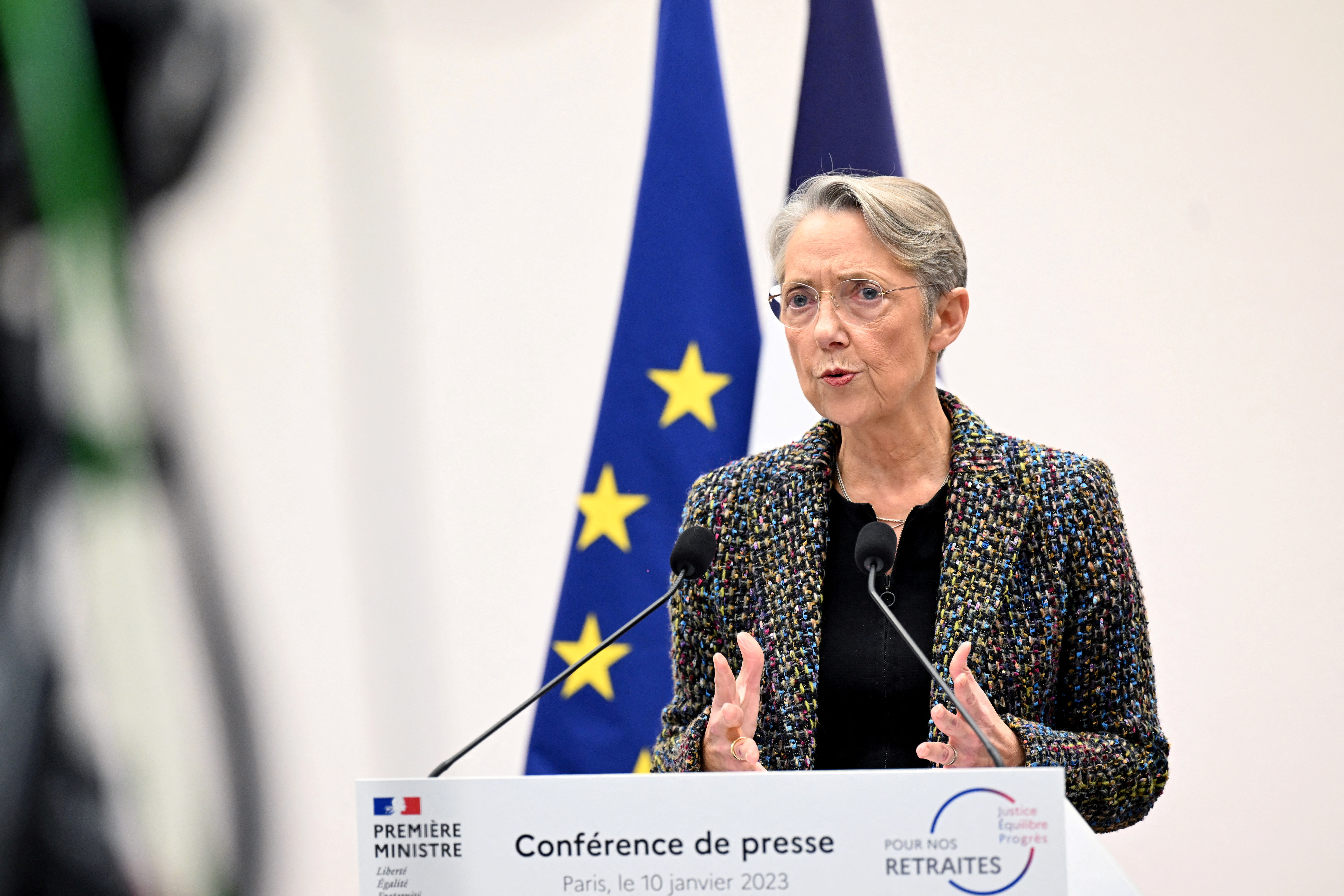The French should work two years longer to age 64 before retiring, Prime Minister Elisabeth Borne said, detailing an unpopular reform of the pension system that prompted unions to call swiftly for a first day of strikes later this month.
The right to retire at a relatively young age is deeply cherished in France and the reform will be a major test for Macron’s ability to deliver change in his second term, all the more so as social discontent mounts over the cost of living.
The reform is needed to keep more seniors in work and the pension budget out of the red, Macron says. The employment rate in France among 60-64 year-olds is one of the lowest among leading industrialised nations.
Borne described the long-delayed overhaul as a facing up to reality. It must now be approved by parliament where the president has lost his ruling majority.
An Odoxa poll showed four in every five citizens oppose the higher retirement age.
“Nothing justifies such a brutal reform,” Laurent Berger, leader of the moderate, reform-minded CFDT union told reporters after a meeting of trade union leaders.
The unions called for nationwide strikes on Jan. 19.
“I’m well aware that changing our pension system raises questions and fears among the French,” Borne had told a news conference shortly before. “We offer today a project to balance our pension system, a project that is fair,” she said.
Overhauling the pension system was a central pillar of Macron’s reformist agenda when he entered the Elysee Palace in 2017. But he shelved his first attempt in 2020 as the government battled to contain the COVID outbreak.
The second attempt will not be any easier.
“It’s one slap in the face after another,” bemoaned 56-year-old Frederic Perdriel during a small protest in the western city of Rennes ahead of Borne’s announcement. “There are other ways to finance pensions than raising the retirement age.”
Macron and Borne will need to win support among conservative Les Republicains (LR) lawmakers if they are to get the reform over the line in parliament.
That looks less challenging than it did a few weeks ago after the government made concessions on the retirement age – Macron had originally wanted it to be 65 – and a minimum pension. Even so, LR is divided on the issue, so every vote counts.
Under the government plan, the age at which one can retire will be raised gradually by three months per year from September, reaching the target age of 64 in 2030.
From 2027, eight years earlier than planned in past reforms, it will be necessary to have worked 43 years to receive a full pension.
Borne said France’s neighbours had also had to raise their retirement ages. Nonetheless, political opponents were unimpressed.
The Socialists, the hard-left La France Insoumise (France Unbowed) and the far-right’s National Rally were swift to denounce the reform. Left-wing lawmaker Mathilde Panot branded the plan “archaic, unfair, brutal, cruel.”
“The French can count on our determination to block this unfair reform,” the far-right’s Marine Le Pen said.
Meanwhile, Olivier Marleix, who leads the LR group in the lower house of parliament, whose votes will be key, reacted positively to Borne’s announcements.
“They heard us,” Marleix said, while asking for more efforts to help ensure people can find work when they are close to retirement age.
France’s main employer association Medef also welcomed Borne’s proposals.
Related Galleries:



